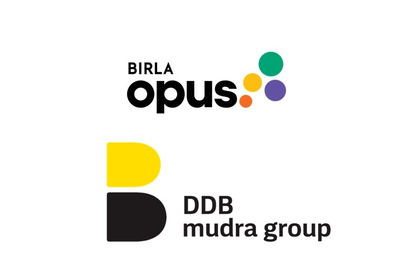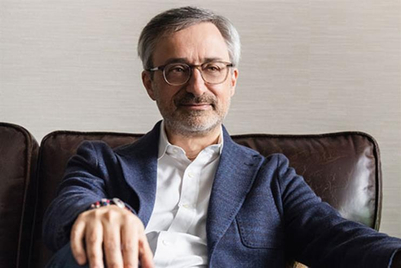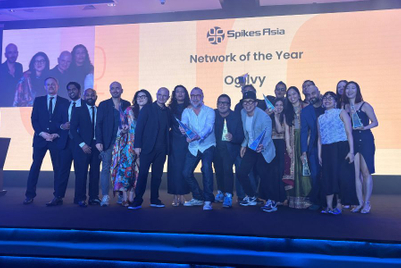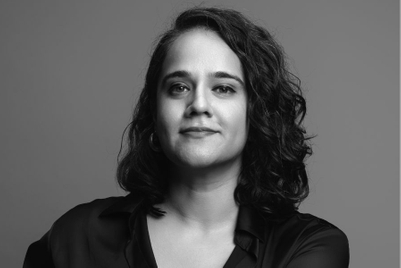.jpg&h=570&w=855&q=100&v=20250320&c=1)
A veteran of the advertising industry recently told Vanaja Pillai, head of DEI at DDB Mudra Group and president of 22feet Tribal Worldwide, something surprising yet reflective of the industry's evolution: five years ago, before diversity, equity, and inclusion (DEI) became critical discussions, it was "okay to do certain things," as that was simply how the industry operated. "Now," he said, "I've learned about treating women differently at the workplace." This acknowledgment underscores a fundamental shift—a validation of what programs like the Phyllis Project are trying to achieve.
Launched in 2018, it was named after Phyllis Robinson, DDB’s first creative copy chief in the US and a pioneer for women empowerment in the industry. Under her leadership, in the 1960’s the agency had more female than male writers with the women writing some famous campaigns at the time, including Polaroid, Ohrbach’s, Levy’s, Avis and Jamaica.
Today, the Phyllis Project was designed to address the gender gap in advertising leadership. When it was adapted for India in 2020, it quickly became evident that a sense of community would be central to the program's success.
Pillai explained that in India, the need was clear for regular, structured support to make a sustainable impact. "It’s not easy to make a significant change if you're doing it only once a year, as life quickly returns to normal,” she shared. “While week-long sessions provide valuable insights, the Phyllis Project in India was restructured around continuous intervention, ensuring that something meaningful happens every month."
The Four Pillars of the Phyllis Project
The Phyllis Project is built around four core pillars: monthly functional training, the Inspiration Series, tailored mentorship, and a strong community framework.
Each month, functional training workshops tackle relevant topics, from managing challenging clients to developing emotional intelligence. The Inspiration Series complements these by featuring accomplished women who share their career journeys and challenges, fuelling participants' motivation.
Mentorship, however, is where the Phyllis Project stands out. Before joining the program, each participant reflects on personal strengths, weaknesses, and career goals. Based on these insights, DDB matches each woman with a mentor who aligns with her unique aspirations, whether it's supporting a young mother’s journey toward guilt-free parenting or guiding a junior professional in strategic thinking. "This isn't a general mentorship exercise,” Pillai clarified. “It’s mapped specifically to each individual’s professional and personal objectives.”

As an Aussie woman, living and working in Denmark for a global company like the Lego Group, Nicole Taylor, senior vice president and head of the Lego Agency, believes that initiatives like the Phyllis Project can sidestep the tendency to have a one-size-fits-all mentorship program, and account for contingency, personal life pivots or careers aspirations. "The more diverse voices we bring in, the better equipped our industry will be to thrive and innovate," she vociferously maintained.
The fourth pillar—community—is a linchpin for confidence-building. Binding all these together, in its first four years, Phyllis Project graduated three batches with a total of 41 women from India, Korea, Singapore, and Hong Kong, which underpins initiative’s collaborative nature.
“When we launched Phyllis Asia, we faced hesitancy as participants were unfamiliar with the program,” Pillai recalled. “Our chief people officer in Asia provided vital support, helping us gain traction over several months. With such learnings, we aim to expand and refine Phyllis Asia in 2025.”
Incidentally, the Phyllis Project won Silver in Campaign Women Leading Change Awards Asia-Pacific 2024’s ‘Programme’ category and Pillai received a commendation as a ‘Diversity & Inclusion Champion’.
Navigating long-standing industry gaps
The gender gap in advertising, particularly in APAC, remains stark. According to the Cannes Lions Global Creativity Report, only 11% of creative directors are women. Despite decades of industry evolution, the problem persists.
Pillai believes that deeply ingrained responsibilities, such as caregiving, continue to disproportionately affect women’s careers. “For a long time, social conditioning has limited women’s confidence to demand what they deserve,” she noted. “Programs like Phyllis build that confidence, but change will be slow.”
Toru Jhaveri, founder of Mumbai-based ad agency The Stuff Of Life, sees the issue as systemic, requiring collective effort. "The onus of change-making shouldn't fall solely on those who need it. If you believe in equity, you should care about fair growth opportunities, regardless of gender. Agencies need to take an intersectional approach, supporting women across different backgrounds to climb the ranks and realise their potential," she emphasised.
There is a commercial reality within the industry about remunerations, however this shouldn’t be used as an excuse for building diverse and inclusive leadership teams. Roisin Rooney, global chief people officer at DDB Worldwide, noted that diversity and representation aren’t aspirations but critical to the success and sustainability of the industry.

Transparency is critical for progress and this can be best exemplified with how gender pay gap reporting has driven tangible improvements in the UK. "From a mean pay gap of 38% in 2017, we have reduced it to 20.4% in 2023. Transparency helps agencies address inequities, which ultimately supports talent retention and development,” Rooney stated.
The Phyllis Project’s impact and expansion
With its India-APAC chapter, the Phyllis Project provides more than just traditional mentorship. This year, it introduced a self-awareness coaching module, where each participant identified core motivations and explored ways to channel them positively in the workplace.
"The program’s evolution is apparent," Pillai said, "from helping women tackle conventional challenges, like asking for deserved raises, to promoting balanced leadership in a post-pandemic work culture.”
Beyond the Phyllis Project, DDB has incorporated DEI initiatives into its broader organisational framework. Since 2020, the company has shifted its gender ratio by 9%, an impressive feat given traditional industry challenges.
Pillai credits this to DEI KPIs across business units. "Each team has specific DEI-related goals checked quarterly," she shared. “It’s a holistic change that is now embedded in our culture.”
At 22feet Tribal Worldwide, where she also serves as president, the project’s influence is palpable. “The success of Phyllis is mirrored in our growth. Today, we have five P&L leaders, two of whom are women,” she added. “They earned their roles through ability and opportunity created by initiatives like Phyllis.”
The broader challenge: Making DEI everyone’s responsibility
The Phyllis Project challenges the notion that DEI is solely a women’s issue. "True equity requires broad-based commitment,” said Rooney. "It’s about fostering environments where everyone feels heard and respected, governed by values like the ‘Freedom from Fear’ and ‘Freedom to Be’—principles integral to DDB’s culture."
Jhaveri stresses the importance of intersectionality. "Leadership is too often seen as static, defined by certain ‘masculine’ traits. The Phyllis Project enables women to find their unique leadership style, encouraging others to do the same," she said. “The stories and networks women build through Phyllis create pathways for success in a way that’s hard to quantify but vital to growth.”
Rooney echoes this sentiment, emphasising that the Asia chapter, in particular, bridges the gap between awareness and action. "Phyllis Asia is creating sustainable change by developing future leaders and role models," she shared. “It shows that gender parity is about fostering better business, not just ticking boxes.”
For Jhaveri, the success of Phyllis is a signpost for the entire industry. After all, long-term cultural change won’t come overnight. But by engaging with diverse leaders and embracing progressive values, workplaces can be fostered that aren’t just equitable but fundamentally better equipped for the future.
While the Phyllis Project may only be one piece of the puzzle, it exemplifies how focused programs can create industry shifts. As Taylor remarked, "Each step matters. The Phyllis Project allows women to shape their journeys within advertising, paving the way for a more inclusive industry."
By challenging norms, encouraging dialogue, and equipping participants with practical skills, the Phyllis Project offers a vision for an industry where everyone has an equal chance to lead, grow, and succeed. For Pillai and her colleagues, it’s proof that lasting change can come from even the most unlikely conversations—like the veteran who finally understood the importance of treating women differently.


.jpg&h=334&w=500&q=100&v=20250320&c=1)
.jpg&h=334&w=500&q=100&v=20250320&c=1)
.jpg&h=334&w=500&q=100&v=20250320&c=1)




.jpg&h=334&w=500&q=100&v=20250320&c=1)



.png&h=268&w=401&q=100&v=20250320&c=1)
.jpg&h=268&w=401&q=100&v=20250320&c=1)



.jpg&h=268&w=401&q=100&v=20250320&c=1)

